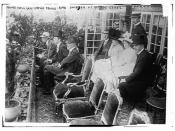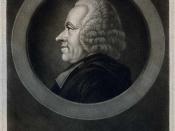One could argue that a man's conscience is but a subtle hindrance when justifying one's actions. The Revolutionary leaders, thus, found themselves in a predicament when fighting for rights and freedoms of only a select group of French citizens. This struggle excluded women and slaves in the French kingdom and its colonies, and the revolutionary elite did not allow rights and freedoms to be enjoyed by all. How can one justify giving natural, civil, and political freedom to one and not to another based just on his skin color? Partly to blame are economics and partly is the perception at the time that every great society prior had done so thus excusing actions of the one in the 18th century. Several philosophs argued not only for the rights of the French Third Estate but also for the slaves and women and this departure from the revolutionary line got some writers and activists an appointment with the guillotine.
Not only did the revolutionary leaders ignore the plight of these two groups of citizens but they are also guilty of subduing the crying voices of the opposition in the most brutal fashion. Again one is confronted with the dilemma of how a revolution that was based on the principles of Enlightenment could be so violent and, now more importantly, so ignorant and biased against the colored, slaves, and women. One of the most prominent philosophs that argued for the ignored, the enslaved and the deprived was Abbe Raynal who, like some of his contemporaries, was ultimately jailed for his opinion. His works shocked the elite and also brought the previously mentioned moral dilemma to all who were feeling disillusioned towards the French monarchy.
Abbe Raynal believed that all men are born with natural rights and that through a government they may achieve...


